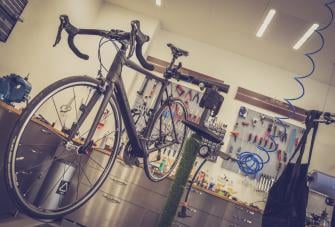Barback meaning: what the role is and how it keeps your bar running
It’s Saturday night. The bar is packed. Music’s loud, glasses are clinking, and your bartender is mixing up ten drink orders at once. They look like the star of the show.
But behind that smooth performance. Behind the smiles, cocktail shakers, quick-fire banter, there’s someone else keeping it all together. Someone hauling ice, swapping kegs, grabbing glasses before they pile up and cause accidents.
That unsung hero is called a barback.
So tonight, we’re shining a light on the barback. Who they are. What they actually do. Why your bar might need one more than you think.
What is a barback?
A barback (or bar runner) is the person who makes sure bartenders have everything they need, exactly when they need it. We’re talking clean glasses, fresh garnishes, full bottles, ice cubes, the basics that keep service moving.
They’re also the ones tidying up spills, swapping out empties, running to the walk-in, and jumping in wherever something’s about to run out.
Think of barbacks as the backstage crew at a concert. The band (in this case, that'd be the lead bartenders) gets all the applause. But the barbacks are the ones making sure the show even happens.
If you’re more of a restaurant person, here’s a quick comparison: a barback is to a bar what a busser is to a dining room. Same concept, different battlefield. They're not front-of-house employees. They don’t take orders or serve the tables. However, they’re constantly working behind the scenes (or back-of-house) to make sure the bar runs smoothly, assisting the bartenders.
Barback vs. bartender
Here's a quick overview of the differences between a barback and a bartender's job:
|
Role |
Barback |
Bartender |
|
Main focus |
Keep the bar running. |
Serve alcohol and make drinks |
|
Interaction |
Mostly with bartenders and other staff in hospitality business |
Mostly with customers as they're serving customers |
|
Career path |
Often a stepping stone to bartending |
Can grow into bar manager, head bartender, or brand ambassador |
TIP: We’ve written a whole blog on bar staff duties and responsibilities if you want to look into this a little more.
What does a barback do during a shift?
Now onto our barback job description. Here's what this exact role looks like in the hospitality industry. So, what does a barback actually do all day? Honestly… a lot. Their exact barback duties can change depending on the bar operations, but there are some things you can pretty much guarantee they’ll be handling every shift:
Cleaning
- Keeping the bar top clear and tidy
- Wiping down bar stools, swapping out any that are ripped or stained.
- Picking up dirty glassware and either running it through the dishwasher or back to the dish pit.
- Polishing wine glasses so they actually sparkle.
- Helping run food or clear plates if things get crazy.
- Taking out trash and recycling throughout the night.
- Cleaning up spills and broken glass ASAP.
- Organizing bottle storage and the keg fridge.
- Keeping no-slip mats clean behind the bar area.
- Unclogging sinks if needed and other physical demands
Stocking
- Prepping garnishes and juice mixes so bartenders don’t have to stop mid-service.
- Sanitizing and topping up ice wells.
- Keeping beer, wine, and liquor fully stocked at all times.
- Replenishing glasses, napkins, coasters, toothpicks, ice cubes—you name it.
- Swapping out dirty rags for clean ones.
- Changing beer kegs, tossing empties, and chilling the new ones for action.
Random “just-in-case” stuff
- Helping bartenders with whatever pops up mid-service.
- Letting security know if a guest is acting shady, underage, or sneaking in their own booze.
- Communicating between bar, kitchen, and security so everyone’s on the same page.
- Very occasionally (if the bartender trusts you and it's a busy shift) you might even punch in orders on the POS.
How much do barbacks make?
Entry-level roles usually start just above $24K, while more experienced barbacks can pull in around $30,300 annually, depending on the bar and location.
The barrier to entry is really low (meaning no degrees, certificates, or even that much experience needed beforehand), just reliability and stamina, and the ability to keep things organized in a fast-paced environment.
Get a bit of experience on the job, maybe snag an alcohol service certification, and you’re well on your way to moving up, or at least making your paycheck a bit fatter.
Top skills for barbacks
Let’s break down what makes a great barback with a section on essential skills:
Hard skills
These are the 'can’t mess this up' skills:
- Stock rotation: Using the oldest bottles first so nothing goes bad and you save money.
- Physical strength: Putting away large boxes of booze requires some strength. Your barback needs to be able to do a lot of heavy lifting.
- Keg handling: Swapping kegs safely and efficiently, without breaking anything.
- Basic tools and equipment: Knowing how to fix small issues with taps, ice machines, or other bar gear.
- Light troubleshooting: Handling little emergencies on the fly.
- POS familiarity: Being able to punch in orders when needed.
Now, the soft skills:
- Anticipation: Seeing what the bartender needs before they even ask.
- Spatial awareness: Moving around a packed bar without bumping elbows or knocking over bottles.
- Active listening: Catching tips and instructions without constant reminders.
- Stamina: Keeping energy up through long, busy shifts.
- Teamwork: Working seamlessly with other bar employees.
- Calm under pressure: Bars are a fast-paced work environment. You've got spills, crowds, broken taps, a busy bar - a good barback handles it without panicking.
- Organized: Barbacks need to have systems in place to keep everything in order.
Does your bar or restaurant need a barback?
Not every bar or restaurant needs a barback. It really depends on things like your concept, how many seats you have, and how experienced your staff is. But if you’re wondering whether it’s time to hire one (or a few), there are some pretty clear signs:
- Bartenders are drowning. If your bartenders are constantly behind on making drinks or talking to customers because they’re busy restocking, cleaning, or running errands, you need backup.
- Drinks are in the wrong glasses. Wine in rocks glasses. Cocktails in pints. Not because it’s trendy, but because those are the only clean glasses left. Not a good look.
- The bar is a mess. Sticky counters, leftover lime slices, piles of ripped coasters, broken glass sitting around.
- Everything is 86’d. If your bar is running on empty and no one’s there to restock, customers go disappointed, and that’s lost sales.
- Bartenders are burned out. By the end of the night, they look like they’ve run a marathon.
- Service is slow. Drinks take forever, servers are stuck at the bar, and customers are getting appetizers before their cocktails.
Pro tip: If staffing is a constant headache, a point of sale system with advanced insights can help you forecast needs, plan shifts, and save time (and stress) on labor costs.
How to hire a barback
Once you’ve got a clear, honest job ad, the next step is getting it in front of the right people. Start with job boards like:
- Monster
- Simply Hired
- Indeed
- Craigslist
- Staffy
But don’t stop there. Post on your Facebook and Instagram too. Your followers are your biggest fans—maybe one of them is perfect for the job.
And here’s a tip: ask your current staff. Great people know other great people. Tap into their network, and if you want to sweeten the deal, offer a referral bonus.
Bar POS system that is ideal for dynamic trading
Keep happy hour happy and beat those friday night rushes with a complete bar point of sale system with one-tap ordering, multichannel sales, and real-time reporting.
One-week training plan for new barbacks
If you're taking on a new barback, here's how you can train them to be absolute superstars in a week:
|
Day |
Focus / Training |
Details / Activities |
|
Day 1 |
Orientation & safety |
Tour the bar, introduce staff, review safety procedures, emergency exits, handling glassware and kegs, cleaning protocols, and proper lifting techniques. |
|
Day 2 |
Stock cycles & keg changes |
Learn how to rotate stock, restock liquor/beer/wine, prep garnishes, swap kegs safely, and track inventory. Practice under supervision. |
|
Day 3 |
Dish & cleaning flow |
Run glassware to dishwasher/dish pit, polish glassware, clean bar surfaces, handle spills, empty trash, and organize storage areas. |
|
Day 4 |
Peak-hour runs & communication |
Shadow bartenders during busy hours. Focus on anticipating needs, communicating efficiently, restocking on the fly, and moving safely in crowded bar areas. |
|
Day 5 |
Solo restock practice |
Handle restocking independently during a quieter shift. Ensure garnishes, mixers, ice, and bottles are prepped and organized without direct supervision. |
|
Day 6 |
Closing routine |
Practice full closing checklist: clean and sanitize bar, ice wells, glassware, restock for next shift, check equipment, and prepare report of low stock/damaged items. |
|
Day 7 |
Evaluation & feedback |
Evaluate trainee on speed, accuracy, POS support knowledge, teamwork, and communication. Provide feedback, answer questions, and discuss next steps or continued training. |
Compliance and safety basics
We put safety and compliance on day one. That’s because no one’s lifting kegs or handling toxic cleaning chemicals until they know how to do it right. Here is everything you should run them through:
Know the legal drinking age
In the US, that's 21. If you have a bar in Puerto Rico or the US Virgin Islands, your customers can legally drink alcohol at 18 years old.
However, in the bar industry, you want to make sure you're extra careful. This means that if someone looks 22 or even 24 in your barbacks eyes, you'll still want to card them to make sure.
Get them to check IDs. Every time. If they’re unsure, don’t guess, teach them to call over the bartender or security.
It’s way easier to ask than deal with a fine later.
Speak up when something’s off
Your barbacks are running around the bar, so they’ll notice way more than the bartender stuck behind the counter.
See someone who looks underage, using a fake ID, sneaking in their own drinks? You need to teach them how to say something and who to.
You should also show barbacks any tips or tricks for spotting sketchy behavior. Some places even have programs like Ask for Angela, where customers can signal if they feel unsafe and staff know how to respond quickly.
Safe lifting for heavy items
Kegs are heavy. Make sure your barbacks know to bend their knees, keep their back straight, and lift with their legs. Unsure? Have them ask for help. Pulled muscles mid-shift are nobody’s friend.
Broken glass & spills
Glass breaks, drinks spill - it happens.
Barbacks need to clear the area immediately, pick up shards safely, and clean spills fast. Training them to handle this properly keeps staff and guests safe, and prevents accidents.
Chemical safety
Cleaners and sanitizers are really important for health and safety, but also hazardous if misused.
Make sure your team:
- Wears gloves
- Reads labels
- Never mixes chemicals
Slip-resistant mats
Use them behind the bar and at sinks. They stop slips and make long shifts a little easier on your feet.
Alcohol service certifications
Programs like TIPS or ServSafe Alcohol aren’t just letters on a certificate.
Even if your state doesn’t require them, they teach staff how to serve responsibly and safely.
Plus, certified barbacks can move up to bartending faster.
Common mistakes and how to prevent them
Even the best barbacks slip up sometimes. The trick is prevention, not punishment.
- Low ice wells – Nothing slows a bar down like empty ice wells. Teach your barbacks to check and top them off before the bartender even asks.
- Misplaced tools – Shakers, muddlers, strainers… if they’re not in their place, chaos follows. Keep everything organized and consistent.
- Undated garnishes – Old fruit is a big no. Label everything and rotate daily. Fresh garnishes only.
- Overstock blocking movement – Stacking bottles and boxes in the wrong spots? Instant traffic jam behind the bar. Teach proper storage so your team can move freely.
- Silent restocks that surprise bartenders – Restocking is great, but let the bartenders know what’s happening. A little communication goes a long way.
- Missed spills – Sticky floors and spills are accidents waiting to happen. Have your barbacks check constantly and clean up immediately.
Point is, none of these are huge problems if you train your barbacks early, communicate clearly, and keep them organized. A smooth bar isn’t luck but good habits done right.
Quick reference glossary
If you're reading this as an aspiring barback, here are some helpful words you'll want to learn before starting your new job. It’s just good bar etiquette:
- Behind the bar: The area where bartenders and barbacks work
- Bar station: Each bartender’s designated workspace
- Speed rack: The small, front-of-bar rack holding the most-used liquors
- Back bar: The shelves or storage area behind the bar holding extra bottles
- Par levels: The ideal amount of stock for each item, so you never run out mid-shift
- 86’d: When an item is sold out or unavailable. “We’re 86’d on house red”
- Comp: A drink or item given free, often for a guest issue or as a courtesy
- Well: The bartender’s main working liquor area, usually behind the speed rack
- Mise en place: French for “everything in its place”
- On the fly: A request that needs to be done immediately
- Walk-in: The bar’s fridge or cooler where extra beer, wine, and perishables are stored
- Drop: Cash or credit card payment taken from the POS cash register to the safe, or sometimes collecting tips
How can a POS system support barbacks
A good POS system isn’t just for ringing up drinks; it can make a barback’s life way easier. Here’s how:
- Real-time inventory tracking: Barbacks can see what’s running low before it’s gone, so they can restock proactively instead of chasing bottles mid-shift.
- Alerts for 86’d items: POS systems can flag items that are sold out, so barbacks know what to remove from the bar or prep substitutes.
- Order flow visibility: Some systems let barbacks see orders as they’re placed. That means they can prep garnishes, ice, or glassware in advance, keeping bartenders moving fast.
- Shift reporting: At the end of the night, barbacks can quickly see what was used, what needs replenishing, and what worked well.
- Communication with staff: Integrated POS features can let barbacks send quick notes or alerts to bartenders and managers without leaving their station.
Final thoughts
That's it from us, bar owners and bar managers. We've gone through the barback meaning, how the role supports bartenders and bar service and how to know if your establishment needs one.
Whether you opt for a barback or not, one thing you should never go without is a bar POS system.
At Epos Now, we help bars stay organized, efficient, and ready for anything that comes their way, so your staff can focus on what really matters: great service and happy guests.
FAQs
- What is the barback meaning in the bar industry?
-
A barback is a support staff member who assists bartenders by restocking supplies, preparing garnishes, handling ice, and keeping the bar organized.
- What is the difference between a bartender and a barback?
-
Bartenders mix and serve drinks while interacting with customers, whereas barbacks focus on stocking, cleaning, and supporting the bartenders in the back of house.
- Do barbacks need certifications like TIPS or ServSafe Alcohol?
-
Certifications aren’t always required, but programs like TIPS or ServSafe Alcohol can improve safety knowledge and career opportunities.
- Is a barback a hard job?
-
Yes, it’s physically demanding and fast-paced, requiring stamina, multitasking, and attention to detail.
- Do barbacks get tipped?
-
Many barbacks receive tips, either directly from customers or shared from bartender tip pools, depending on the establishment. Tip sharing is usually set by the bar or restaurant, distributing a portion of bartender’s tips to barbacks based on hours worked or contribution during the shift.
- How does a barback contribute to a bar’s success?
-
If you’ve ever asked yourself “what is a barback?” they are the absolute heroes who keep the bar running smoothly. Barbacks have a super important role in a bar’s success by keeping the bar stocked, clean and organized so that bartenders can focus on serving customers.




